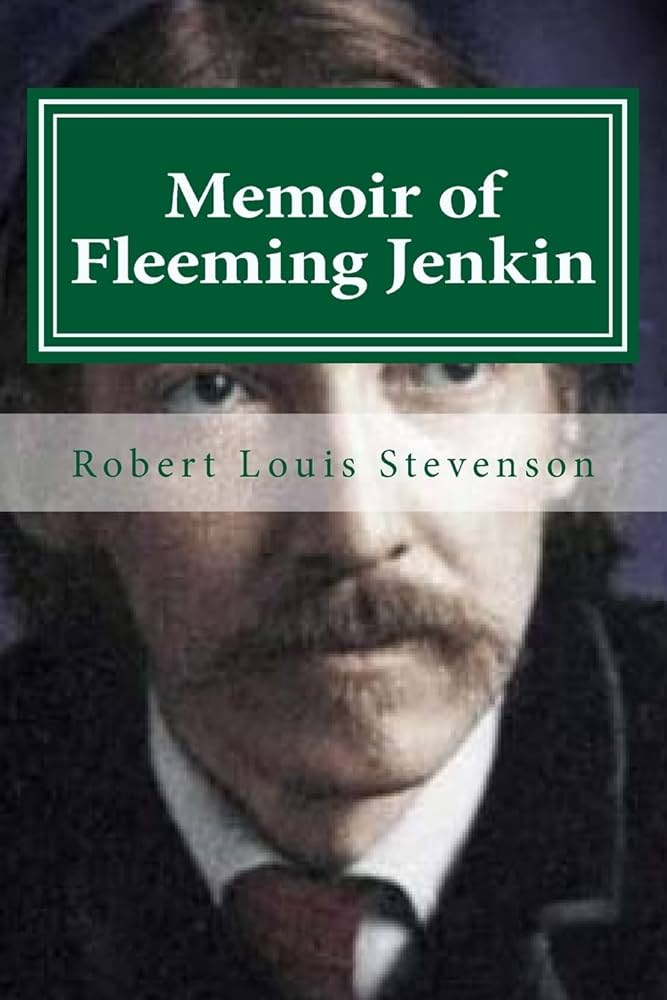Chapter II — The memoir of Fleeming Jenkin
byChapter II — The memoir of Fleeming Jenkin paints a vivid picture of a man whose curiosity and passion extended far beyond his engineering career. His connection to rural life offered a peaceful yet stimulating contrast to his academic and professional obligations. Time spent among villagers revealed his natural ease in embracing different lifestyles, and he approached rural customs not with detachment but with genuine admiration. These visits were more than retreats—they were opportunities to explore a world grounded in tradition and community. His presence was marked by thoughtful observation, respect, and an eagerness to learn from everyday life outside the city’s rigor.
Fleeming’s devotion to the theatre added another layer to his character, revealing a side both emotionally expressive and intellectually refined. He didn’t just attend plays—he studied them, interpreted them, and occasionally performed them with skill and passion. His theatrical interests weren’t casual hobbies but informed extensions of his creative mind. He could evaluate structure, pacing, and dialogue with a clarity few amateurs possessed. Yet what made his engagement unique was the blend of technical critique and emotional immersion. He understood how a play worked and, at the same time, let himself be moved by its storytelling. This duality made him not just a participant, but a true connoisseur of drama.
The amateur theatre he helped establish with friends reflected his ability to merge personal interest with social engagement. Together, they transformed informal gatherings into well-organized productions, with Fleeming often taking the lead in directing or acting. His preparation for roles was marked by dedication—each gesture and word considered with care. The rehearsals were not just for performance but also for fellowship, deepening the bonds between participants. These moments of shared creativity became a cherished part of his life. His engineering precision extended to the stage, where he brought structure and clarity without dampening the fun. The result was theatre that felt personal yet professional, playful yet deeply meaningful.
The chapter underscores how theatre served as a space for balance and joy in Fleeming’s life. While his work in science demanded logic and order, the stage gave him room to explore imagination and emotion. The contrast didn’t divide him—it completed him. Even in the roles he played, one senses the engineer’s mind and the artist’s heart working in harmony. His passion was contagious, drawing others into the world of performance with warmth and enthusiasm. Theatre was not just entertainment for him; it was a form of connection—a way to experience others’ perspectives while expressing his own. This outlet allowed his intellect to remain sharp without becoming rigid.
What stands out most in this chapter is Fleeming’s ability to invest fully in whatever he pursued. Whether organizing drainage plans or directing a comedy, he brought the same blend of seriousness and delight. He didn’t see work and leisure as separate domains but as parallel paths of fulfillment. The joy he found in stagecraft spilled over into his professional life, and his methodical thinking made him a better collaborator in artistic endeavors. Friends admired his ability to transition effortlessly from one realm to another, always giving his best. His theatre work wasn’t an escape—it was an extension of his inner life. This ability to blend roles—artist, engineer, citizen—made him not only respected but deeply beloved.
The communal nature of Fleeming’s theatrical pursuits also revealed his instinct for leadership rooted in collaboration rather than command. He knew how to draw out the best in others without overshadowing them. His direction felt less like instruction and more like invitation. By nurturing talent in his circle and setting a high standard for performance, he elevated the amateur productions into something memorable. He created an environment where everyone felt essential, and that inclusivity made each success a shared one. Through theatre, he demonstrated that joy could be structured, and excellence could be welcoming. In this harmony, Fleeming found a lasting source of happiness and meaning.
In sum, this chapter presents a man whose love of beauty, learning, and fellowship informed every corner of his life. He remained grounded in tradition while open to artistic discovery, and his time on stage became a reflection of his deeper character. Through performance, he shared his joy, sharpened his mind, and brought others together in laughter and reflection. His story reminds us that the richest lives are those in which intellect and imagination are not rivals but partners. And in that spirit, Fleeming Jenkin’s legacy endures—not only in circuits and cables but in the memories of those who joined him in the simple, powerful act of telling stories.


